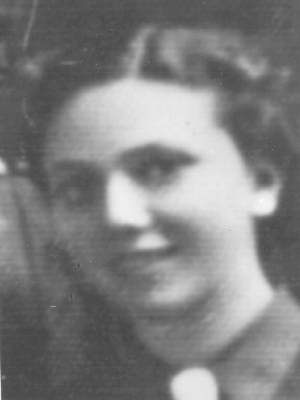
Regina was one of six children born to Teresa (Halpert) and Meinhart Katz. She had four sisters and an older brother. Though her town was small, it hosted many cultural events, including visiting opera and theater companies.
Regina's father emigrated to the United States. He left Hungary to find work and prepare a new home for his family. He obtained visas for his wife and children so that they could join him. The visas arrived on December 8, 1941, just as Hungary, as an ally of Germany, declared war on the United States. Unable to bring his family to the United States, Mr. Katz began arranging for visas to Palestine. He wanted to get his family out of Hungary as soon as possible.
The Germans invaded Hungary in March 1944. The visas for Palestine arrived four weeks later. Regina's family was herded into a closed-off ghetto along with the thousands of Jews who lived in the surrounding area. There was little food or medicine, and many people died.
On May 29, 1944, the ghetto was emptied. Its residents were marched down the main street of Kisvarda, right in front of their former neighbors and friends, to the train station. Seventeen year-old Regina and her family were herded into an overcrowded cattle car. They travelled under conditions that barely sustained life.
Three days later, they arrived at the Auschwitz death camp. Regina's little sister, Potyo, and her mother were immediately separated from the rest of the family, and were murdered. Regina and her sisters were imprisoned in Auschwitz for six months. They were starved and tortured until it was their turn to be murdered, but they managed to survive the many "selections" to the gas chambers.
When the Nazis began evacuating Auschwitz in November 1944, Regina and her sisters were sent to a forced-labor camp in Germany. The inhumane treatment, including savage beatings and random shootings, continued. Moved again in January 1945, as the Russian army advanced, the prisoners were force to march in a blizzard to yet another concentration camp. Ragina could barely walk. She and two of her sisters managed to escape from the line of prisoners and hide in an abandoned house. On January 25, 1945, they were liberated by Russian troops.

